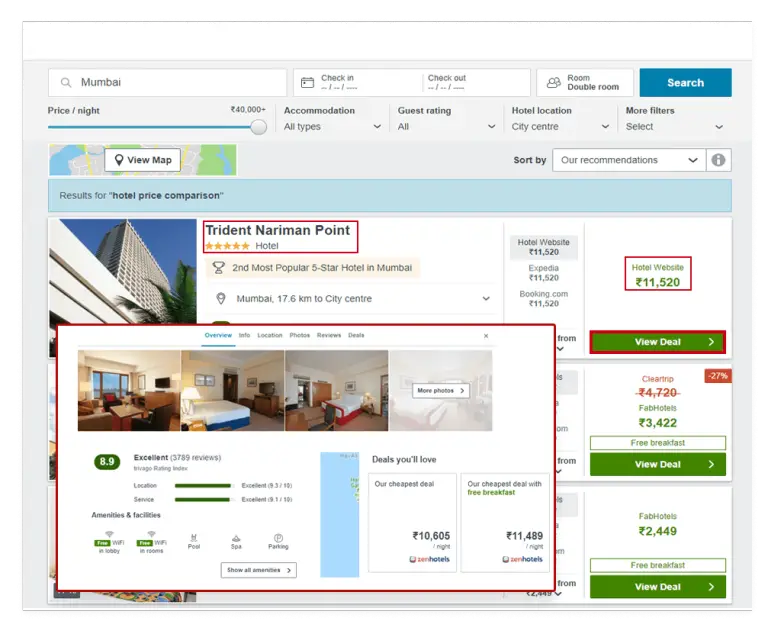
Understanding Hotel Price Monitoring
Hotel price monitoring involves tracking and analyzing the prices of hotel rooms across various channels, including online travel agencies (OTAs), hotel websites, and metasearch engines. By monitoring prices in real-time, hoteliers can make informed decisions about their own pricing strategies, identify opportunities for revenue optimization, and respond quickly to changes in market conditions.
The Power of Data Scraping
Data scraping, also known as web scraping, is the process of extracting data from websites and transforming it into a usable format. With the advancement of technology, data scraping has become increasingly sophisticated, allowing hoteliers to gather vast amounts of data quickly and efficiently. By scraping hotel websites and OTA platforms, hoteliers can collect data on room rates, availability, booking patterns, and customer reviews.
Key Benefits of Hotel Price Monitoring
-
Competitor Analysis: By monitoring competitor prices, hoteliers can gain insights into market trends and adjust their own pricing strategies accordingly. For example, if a competitor lowers their prices during a particular season, hoteliers can respond by offering discounts or promotions to attract customers.
-
Dynamic Pricing: With real-time data on market demand and competitor pricing, hoteliers can implement dynamic pricing strategies to maximize revenue. By adjusting prices based on factors such as occupancy rates, booking patterns, and consumer preferences, hotels can optimize their revenue potential.
-
Inventory Management: Hotel price monitoring can also help hoteliers manage inventory more effectively. By tracking room availability across different channels, hotels can avoid overbooking or underutilization of rooms, ensuring maximum occupancy and revenue.
-
Consumer Insights: By analyzing pricing data and consumer behavior, hoteliers can gain valuable insights into customer preferences and booking patterns. This information can be used to tailor marketing campaigns, optimize pricing strategies, and enhance the overall guest experience.
Best Practices for Hotel Price Monitoring
-
Choose the Right Tools: Selecting the right data scraping tools and technologies is crucial for effective hotel price monitoring. Look for tools that offer scalability, flexibility, and reliability, allowing you to gather data from multiple sources with ease.
-
Monitor Multiple Channels: To gain a comprehensive understanding of the market, monitor prices across multiple channels, including OTAs, hotel websites, and metasearch engines. This will provide a more accurate picture of pricing trends and competitor strategies.
-
Automate Data Collection: Automating the data collection process can save time and resources, allowing hoteliers to focus on analysis and strategy development. Invest in automated scraping tools that can gather data in real-time and provide timely insights.
-
Stay Compliant: Ensure that your data scraping practices comply with legal and ethical standards. Respect website terms of service, privacy policies, and copyright laws to avoid potential legal issues.
Conclusion
Hotel price monitoring is a powerful tool for revenue management, allowing hoteliers to gain insights into market trends, competitor strategies, and consumer preferences. By leveraging data scraping technologies, hoteliers can unlock the full potential of their pricing strategies and maximize revenue opportunities. By staying informed, proactive, and agile, hoteliers can gain a competitive edge in today's dynamic hospitality market.





